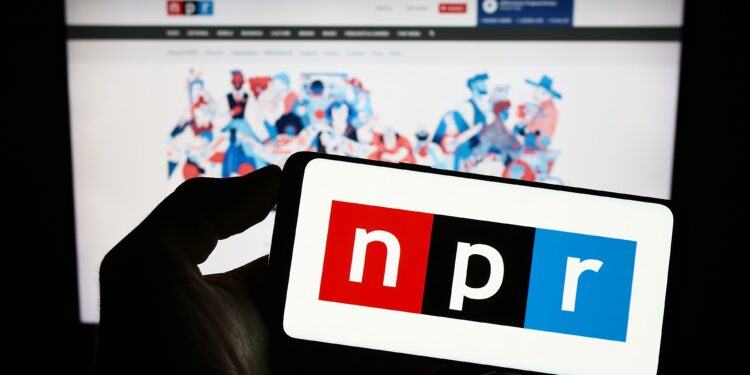“Across Indian Country this will be a real issue for many residents that live on reservations where the majority of their access and connection to their community is through a local radio station.” – KOSU Executive Director Rachel Hubbard
OKLAHOMA CITY – “Defunded, but not defeated” are the words currently displayed on a banner on top of the home page of the National Public Radio (NPR) affiliate KOSU’s website. The words describe the station’s situation now that the Corporation for Public Broadcasting (CPB) has shut down due to $1.1 billion in funding cuts from the House Bill Recissions Act of 2025 that was signed into law on July 24. CPB was a private, nonprofit organization originally authorized by Congress in the Public Broadcasting Act of 1967.
While KOSU will not immediately shut down as a result of the new law, it creates difficulty for the affiliate to provide its public services to the community- including Indian Country and the Mvskoke Reservation.
KOSU is the NPR affiliate for the Oklahoma City and Stillwater areas. Other NPR affiliates affected by the cuts include KGOU in Norman, KCCU in Lawton, and KGWS in Tulsa. The cuts come from a Trump Administration request, which described public broadcasting as “not part of their agenda,” and are part of the $9.4 billion rescission bill.
KOSU Executive Director Rachel Hubbard said the budget cuts came just 23 days after the new fiscal year started for her station. While Hubbard’s team is aware of the known costs that will affect the station, there are also unknown costs, like music licensing. KOSU will now have to find a new way to retain those licensing rights.
“In terms of cash money, it’s specifically $311,000 for the fiscal year that started for KOSU on July 1,” Hubbard said. “The Corporation for Public Broadcasting, which announced on August 1 that it will cease operations following this rescission, paid for things like music rights. They negotiated those things on behalf of the entire public media system. Those included NPR member stations, community-licensed radio stations, tribal radio stations and public television stations.”
Hubbard estimates the annual losses could range closer to $500k, factoring in unknown expenses like donation drives. KGOU is reporting these cuts will affect 1/7 of their budget, or $215k. Other unknown expenses include transmitters that send signals to tribal stations that provide universal access to NPR programming for their local communities.
“There are fees associated with satellite systems that a lot of really rural tribal stations and stations that have transmitters in rural areas like Nowata County,” Hubbard said. “The Cherokee Nation is an example because they are dependent on the public radio satellite system.”
NPR’s Coverage of Indian Country
Although the cuts leave the services provided by KOSU uncertain, a service that is certain in the near future is its Indigenous affairs coverage- the funding for this comes from private sources. Within the last year, the station produced over 400 stories on Indigenous affairs. A total of 154 were intertribal stories, 25 specifically covered Mvskoke Nation.
According to Hubbard, tribal stations funded by CPB are at high risk of shutting down or reducing coverage in their respective communities. The cuts will affect a Missing and Murdered Indigenous People alert system that was in development. That system was supposed to start airing next month.
“Loris Taylor from Native Public Media has been working really hard on the MMIP (Murdered and Missing Indigenous People) alerts that we’re supposed to roll out in September,” Hubbard said. “That’s part of the emergency alert system that is managed by many public broadcasting entities including KOSU for large parts of northeast Oklahoma. The rollout of that will likely be stunted or paused.”
KOSU is also responsible for broadcasting emergency weather alerts, which send warnings for severe storms like tornadoes. Due to its importance in keeping the public informed on inclement weather, maintaining the equipment is a top priority for the station, especially in light of budget cuts.
KOSU is licensed as a non-commercial station, which means it is illegal for them to sell advertisements. However, they can air sponsorships from businesses within strict parameters. Each sponsorship only lasts fifteen seconds and can not contain qualitative language like “best” or “tastiest.” According to Hubbard, 53% of the station’s revenue came from individuals over the past year. Despite funding pitfalls, Hubbard said the response from the community has been “phenomenal.” Making up the lost funding will simply be a recurring issue the station will face annually.
Many NPR stations, including KOSU are currently hosting an emergency pledge drive. For those that would like to make a donation to support public radio, visit their website, donate.kosu.org. Donations can also be made over the phone by calling 855-808-5678.





